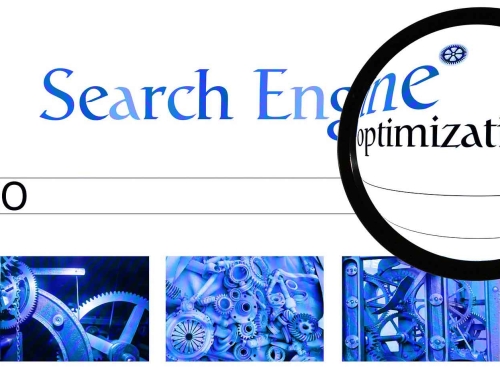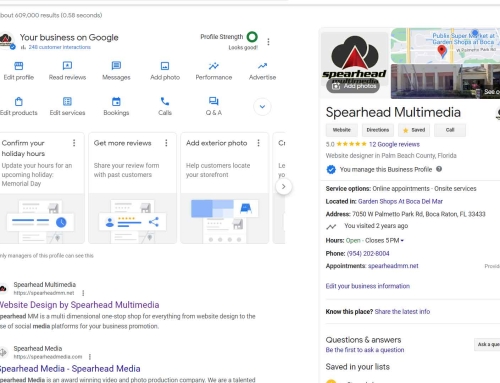Google’s New SEO Algorithm Looks for This When Ranking Sites
The rules of SEO are constantly evolving.
Search engines like Google update their algorithms so frequently, and it can be dizzying to know how to get your site ranked the way you want. One thing is clear, however: keywords just aren’t enough to get you the traffic you want.
Trust is the core component of Google’s relevancy-oriented search, and without it, you won’t be relevant.
Building real trust with Google isn’t easy. The smarter the system gets, the harder it can be to rank. But don’t worry just yet. There are things you can do to ensure that your site still ranks the way you want it to.
Why Google’s SEO Algorithms Matter
Google’s algorithm rules aren’t arbitrary: they have a purpose. Before you can improve your SEO ranking, you have to understand the ultimate motivation.
Google’s main goal is to deliver the most relevant search results as fast as possible.
They use deep neural networks of data to create a system that can think like the human brain, or attempt to, anyway. This approach is called “deep learning” and it’s used all across the Internet to improve user experience.
It’s ultimately an effort to help computers process information the same way humans do.
So when you search for “best website design ideas,” you get results based not only on your query, but on your search history, what other people are searching for, and what sites have content that closely resembles what the engine thinks you mean.
The smarter that the algorithms get – the more humanlike – the harder it is to “game” the system. Plugging your site with random keywords doesn’t work anymore, because Google can see through your attempt to keyword stuff.
Instead, you have to get Google to trust you. How do you do this?
In a book entitled SEO 2017: Master Search Engine Optimization, R.L. Adamslays the groundwork: You build trust with age, authority and content.
Building Trust with Age
You may think that using age as a ranking factor puts newer sites at a disadvantage, but know that with Google, age is more than a number.
Google relies on its relationship with your site over time to judge whether or not you’re trustworthy enough to list on the first few pages. Time is still a factor – the longer it knows you exist, the more likely you will be to rank – but if it sees that you produce value for visitors over time (you have heavy traffic, your site gets linked to, you produce frequent content, etc.), your relationship will improve.
For sites that have been around longer, this gives you an automatic boost to your rankings, which may come as a relief. For newer sites or those that post less frequently, you will still have to build up your reputation over time.
Keep in mind that age doesn’t necessarily mean when you launched your site, though. Age refers to the indexed age, meaning when Google actually discovered you first. So if you had a site for a while but haven’t done anything with it until now, you will still be a baby in Google’s eyes.
Building Trust with Authority
If you don’t have age in your favor, you can also boost your ranking with authority.
In the past, you would build authority through your Google PageRank. The higher on the scale of 1-10 your site sat, the more trusted it would be. If you could link to more established (higher ranking) sites, you could boost your own score.
While Google still uses PageRank as a factor in SEO, it no longer gives the public access to PageRank ratings, making it impossible to know how you actually fare. Instead, Google uses Domain Authority to determine the trustworthiness of your site.
Domain Authority is a score (100 points) developed by Moz that predicts how well a website will rank on search engine result pages (SERP). While it’s not a direct replacement for PageRank, it does allow you to see where your site sits in the rankings.
What makes Domain Authority helpful is that it gives you a way to measure the strength of your links. You can see exactly which sites are giving you the best boosts and which links are altogether worthless for your ranking power.
A few ways to improve your Domain Authority include:
- Optimizing your internal links – Making sure links go to relevant content, use natural anchors that make sense to users, are linked to the right keywords, etc.
- Creating more link-worthy content – Avoiding keyword stuffing, but creating content that does link out to other sites
- Pursuing higher quality links – Linking to trustworthy (older, more established) sources, putting your site in a directory like Google My Business, Yelp, TripAdvisor, and the Better Business Bureau, etc.
- Running link audits – Eliminating broken or bad links as often as possible
The better links you have (the better your link profile is), the better your Domain Authority will be.
Related: How to Increase Domain Authority: Beginner’s Guide (for 2021)
Building Trust with Content
The other thing that Google looks for when building trust is fresh, quality content.
When you publish quality content on a regular basis, you give Google more opportunities to index your site for links as well as for targeted keywords (yes, keywords still matter).
Frequently adding content, like blogs or articles, allows you to optimize the article with pertinent keywords that can attract visitors to your site, and provides you additional ways to link to authoritative sources and higher ranking sites.
The trick is that your content has to deliver genuine value. In the past, Google’s algorithms would look at the number and frequency of keywords being used throughout the content on your site to determine relevancy.
But the trouble with this is that Google’s new algorithms actually punish keyword stuffing. Instead, the algorithm looks for specific keywords or keyphrases (even “natural language” search phrases and questions) that fall into the content naturally.
In other words, the keywords have to make sense in context – and yes, Google can tell.
This means that for content to help you build your credibility, it has to:
- Be popular enough to attract traffic
- Include relevant keywords naturally
- Provide enough value that users share and save it
- Include meta tags, title tags, and descriptions
- Be published frequently
The good news is that you can publish as much content as you want, as long as it’s high-quality. This can be one of the best strategies for newer sites looking to rank higher in SERPs since Google will still build a relationship with your content even if you haven’t been around for long enough to have age or link authority.
Related: 120 of the Best Words and Phrases for Marketing with Emotion
Final Thoughts
If you want to create a site that ranks under Google’s new SEO algorithm, you have to focus on building a relationship with Google and steer clear of smarmy tactics like keyword stuffing or over-linking.
Thanks to Artificial Intelligence, Google thinks and acts more like a human when it processes your site, meaning that, in a way, it’s judging what you have out there.
In order to make sure it trusts your content, you want to produce content that offers value for searchers, build natural links and relationships with other high-ranking sites, and stick around long enough for Google to see you.
Ask us what we can do to help. It’s easier than you think.
























Leave A Comment
You must be logged in to post a comment.